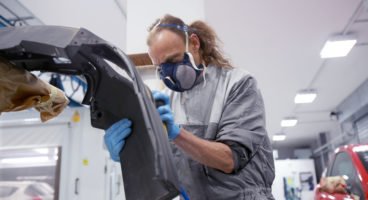
The coronavirus crisis has “pushed forward digitisation of the motor industry by probably five years,” the Vehicle Remarketing Association were told at today’s member meeting (July 1).
Mike Jones, chairman of ASE Global, one of three speakers who addressed almost 50 delegates on the subject of the future development of the pandemic, said that all key elements of the digitisation of the sector had been accelerated over the last few months.
“Whichever aspect you examine, from retail to delivery, there has been a marked shift online. Probably the only major trend that has suffered is mobility services, because of the need to share assets such as through car and ride sharing. Everything else has advanced.”
He added that what the industry was now seeing was “genuine omni-channel retailing. Arguably, we have even become a digital-first sector in a very short period of time.”
The broader economic picture in the motor industry was tackled by second speaker Lee Swinerd, managing director – advisory at KPMG, who said that two key factors would influence the speed of post-lockdown economic recovery over the next few months.
“Assuming coronavirus is kept under control and using KPMG’s preferred model that supposes a vaccine is implemented within a year, we need to look at the rate of job losses and at consumer confidence, two things that are very much interrelated and potentially impacted by Brexit as well as the current pandemic.
“The lesson to be drawn from elsewhere in the world is that, while there are a minority of the public that flout the rules on social distancing and other infection risk factors, there is a silent majority who are more cautious. Just because a shop or a dealership is open, it doesn’t mean that those people will use it. The Government needs them to become more economically active.”
The final speaker was Dr Justin Varney, director of public health at Birmingham City Council, who looked at the likely development of the coronavirus situation over the next few months.
“Generally, the question is not whether there will be a second spike but when it will happen, where, and its degree of seriousness. Much of this depends on how the whole country follows basic guidance such as social distance and hand washing.
“Certainly, employers in the motor industry have their part to play and I would urge everyone to make sure that they are following the latest advice and ensuring that a high degree of compliance is maintained. Everyone has a part to play in controlling infection.”
The member meeting followed on from the VRA’s Annual General Meeting, its first held using video conferencing because of the coronavirus crisis. VRA chair Sam Watkins reported that the last 12 months had been very successful for the organisation, which represents businesses involved in the remarketing of 1.5m vehicles every year.
“Membership has grown by 15% in the last year and we held our biggest-ever event, the VRA Seminar, which was attended by 180 people last November. Also, since the start of the coronavirus crisis, a series of webinars have been held, of which this was the fifth, to keep members abreast of the latest developments in the crisis. We have also been active in starting new initiatives and raising emerging subjects for widespread industry discussion.
“The VRA is, we believe, serving a very important purpose as a voice of the remarketing sector while also providing members with crucial and timely support and information.”
